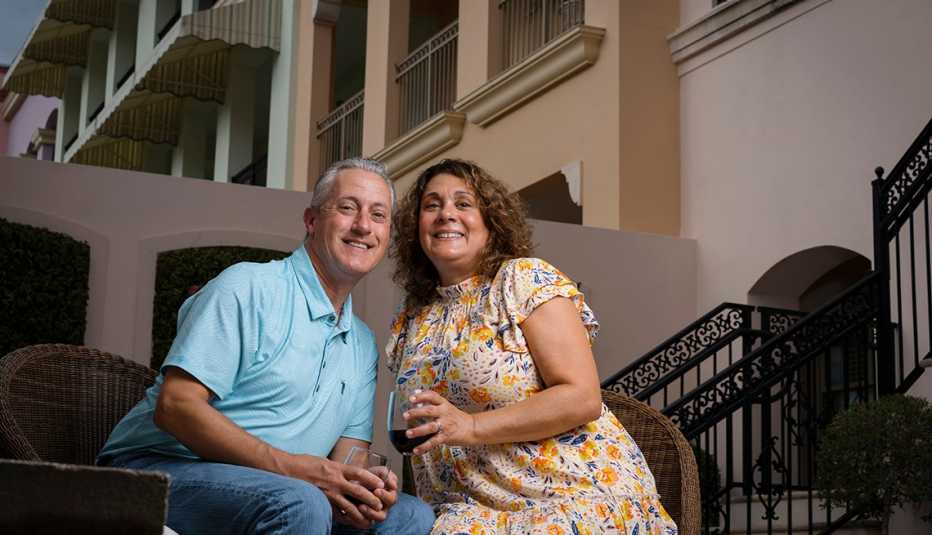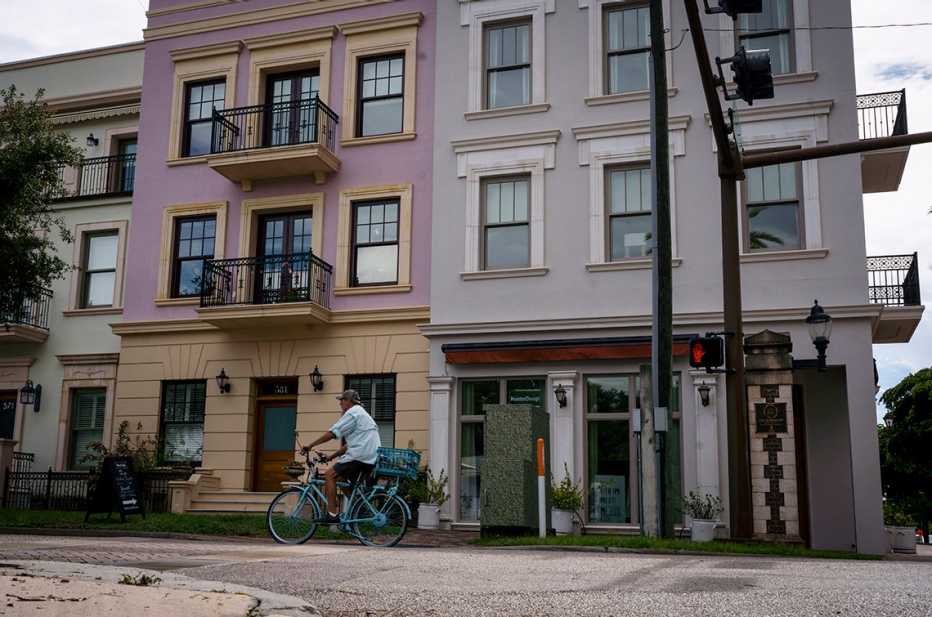AARP Hearing Center


When Jeanine Consoli, a retired teacher embarking on a second career as a freelance travel and food writer, and her husband, Tony, decided to sell their town house in Bucks County, Pennsylvania, and relocate to Florida, their first thought was to buy another home.
But the couple had a difficult time finding a house to purchase in their target market, Sarasota, which was red-hot.
“The Realtor canceled on me three or four times, saying, ‘I’m sorry, the property is now under contract,’ ” Jeanine, 57, recalls. “That’s why we decided to rent.”
It turned out to be the right choice for them. The couple found an affordable two-bedroom apartment in a building Jeanine says reminds her of a Brooklyn-style brownstone (except that it’s pastel-colored). It’s close enough to Tony’s office that the 58-year-old insurance executive can walk to the office rather than fight commuter traffic.
“We’ve lived in this apartment for a year, and we love it,” Jeanine says. Though the couple still plan to buy a house, renting has given them a chance to take their time and get to know their new hometown better.
Whether you’re already retired or getting a head start by moving early to an eventual retirement destination, if you’re a longtime homeowner, you face an important choice: Should you buy another home or rent instead?


‘The ultimate question’
Retirement planners and relocation specialists say it depends on an assortment of factors, including your financial state, the housing market in your new locale, how well you know the area and how confident you are that it’s your last move. Both choices have potential upsides and downsides, so you’ll need to find a balance that best suits you.
“To rent or buy may be the ultimate question facing relocating retirees,” says Mark Charnet, founder and CEO of American Prosperity Group, a retirement planning firm in Pompton Plains, New Jersey. “Neither option is superior, as it really depends upon each retiree’s situation.”
About three-quarters of baby boomers own homes, but recent data suggests that rate is starting to decline, says Doug Ressler, a senior analyst and manager for real estate intelligence firm Yardi Matrix.
“I think we might be at the beginning of an inflection point, where the number of boomers renting will go up,” he says.
Here are six questions to consider in deciding whether to rent or buy when you relocate.
1. How are your finances?
Though home rents spiked during the COVID-19 pandemic, renting generally remains a cheaper option than taking out a new mortgage, Ressler says. According to data from Yardi Matrix and Moody’s Analytics, the median monthly rent in the first quarter of 2023 was $471 less than the median mortgage payment, based on a 30-year fixed rate mortgage with a 90 percent loan-to-value ratio (the proportion of property value to loan balance).
Buying can cost considerably less in the long run if you’re able to pay cash for a home or to make a big enough down payment to secure a low monthly mortgage, says Derek Miser, an investment adviser and the CEO of Miser Wealth Partners in Knoxville, Tennessee. But up-front expenses such as closing costs can be high, he notes, and owning means ongoing outlays for property taxes, homeowners insurance and maintenance.
With renting, your up-front costs are lower — basically, a security deposit equal to a month or two of rent — but rents can rise substantially from lease to lease. From April 2019 to April 2023, the median cost of an apartment in the United States went up by more than 20 percent, from $1,619 to $1,967, according to Rent.com, a listings website.
2. How much do you want to simplify your life?
Moving from Huntington, New York, to St. Petersburg, Florida, in 2021 made Chris McDonald’s life a lot easier. “I sold my house, which was hard to take care of,” he says. “I have arthritis, and it also needed a lot of repairs.”
McDonald, 70, who works part-time as an online tutor, rents a condominium in an age 55-plus complex where he doesn’t have to fix anything and has access to four swimming pools.
After years as a homeowner, Jeanine Consoli also enjoys the reduced responsibilities of living in an apartment. Instead of a three-story town house, “now we have a two-bedroom, one-level home,” she says. “It’s easier to clean, easier to cool, easier to maintain.”
“The desire for simplicity could be a big factor for people,” says Barbara O’Neill, a retired Rutgers University professor and author of the book Flipping a Switch: Your Guide to Happiness and Financial Security in Later Life. “Not having to do maintenance on a house, not having to mow the lawn or shovel the snow.”



































































More From AARP
5 Reasons to Consider a Retirement Relocation
Change of scene could stretch savings, reboot lifestyle
Can Remote Work Get You a Head Start on Retirement?
If you have a dream destination in mind, careful planning and a willing boss could help you make the move ahead of schedule
Study: Florida, N.C. Most Popular States for Retirees
Cheaper housing a growing motivation for relocations